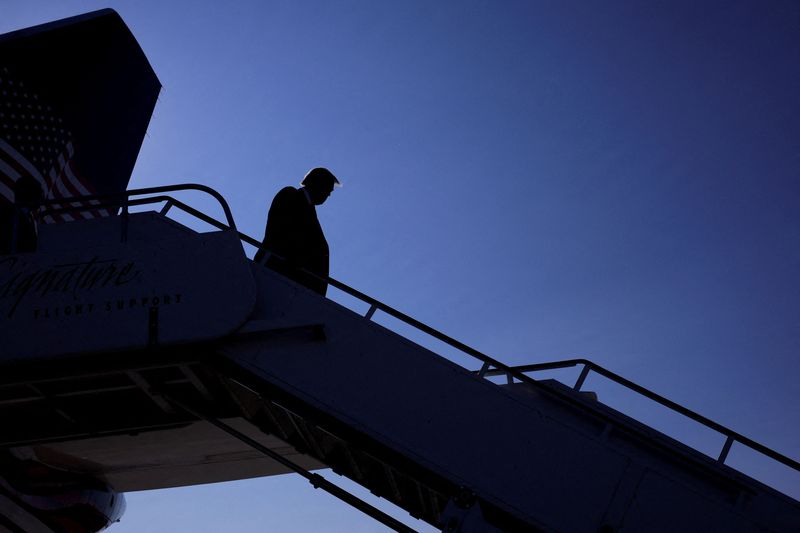By Michelle Conlin
NEW YORK (Reuters) – Four accounts on crypto-based prediction market Polymarket that placed large bets on former President Donald Trump winning the 2024 election, and have been the subject of much online speculation, are owned by non-Americans or a non-American, according to a source familiar with the matter on Friday.
Opinion polls indicate a likely close match between Trump and Vice President Kamala Harris in the vote on Nov. 5. However, the odds have diverged on Polymarket, with Trump pulling strongly ahead at a 60% chance of winning versus Harris on 40%.
The trade was driven by four accounts that placed more than $30 million worth of bets, according to the source, confirming an earlier story in the Wall Street Journal.
Political pundits and social media users have questioned whether specific high-profile Americans could be behind the moves.
But Polymarket does not allow Americans to make U.S. election bets on the exchange, and the source confirmed that Polymarket’s users are international. The source said the company certifies all of its large traders to ensure they are not logging in via VPNs to obscure which country they are in.
Reuters could not immediately determine if the four accounts represent a single trader or many.
Given the size and impact of the bets, Polymarket is investigating the activity in partnership with outside experts, the person said, confirming the Wall Street Journal’s reporting. A $30 million bet on Trump on Polymarket would be equivalent to about 1% of trading volume on the platform related to the presidential race.
Americans have faced steep restrictions on betting on U.S. elections online. The Commodity Futures Trading Commission has previously rejected applications to offer contracts or derivatives that allow Americans to bet on elections.
CFTC Chairman Rostin Behnam said in a September 2023 statement that such event contracts would effectively turn the agency into an “election cop,” a duty for which the CFTC lacked a mandate.
“It makes sense for the CFTC to have authority to combat fraud, manipulation, and false reporting in underlying commodity markets,” Behnam said at the time. “But it is impractical for the CFTC to combat them in the underlying market here – a political contest.”
Proponents argued the contracts could be a valuable new financial tool to provide insight on the future.
In November 2023, Kalshi, another betting exchange, sued the CFTC over its ban on U.S. election betting. A federal appeals court sided with Kalshi on Oct. 2, paving the way for Americans to start trading on political races just one month ahead of the election.
Kalshi has Trump at 57% and Harris at 43%.
In an emailed statement, Kalshi said: “Our stance on Trump’s surge in odds is that it’s all part of normal market activity. Trump is simply gaining popularity, and prediction markets aggregate information from a wider audience at a faster pace than polls.”
The CFTC did not respond to requests for comment.

